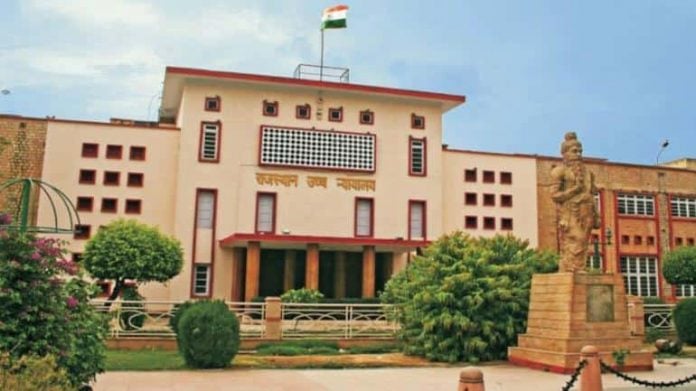The Rajasthan High Court recently granted bail to a woman who is in jail for seven years with her minor daughter for an offence punishable under Sections 302/120-B & 201 of the Indian Penal Code and Section 4/25 of the Arms Act.
This is the second bail application whereas the first bail application was dismissed on 15.12.2016 by the High Court.
Sudhir Sarupariya, counsel for the petitioner, stated that the petitioner is a woman and she has been inside jail since 02.06.2015 along with her minor daughter, who was aged about three years at that time; and the trial of the case is yet pending.
The counsel further submitted that the trial proceedings are not being concluded on account of failure of the witnesses in appearing before the trial court. In such circumstances, the benefit of bail may be granted to the petitioner.
Having heard the considered arguments advanced by the counsel for the petitioner and the public prosecutor, a single bench of Justice Manoj Kumar Garg noted that the Supreme Court in the case of Tapan Das Vs. Union of India (decided on 07.10.2021) has observed as under :-
“Taking into consideration the fact that the petitioner is reported to be in custody since 16.10.2017 and has, thus, suffered incarceration for around 4 years and there is no likelihood of completion of trial in the near future, which facts are not controverted by learned Additional Solicitor General appearing for the Union of India during the course of hearing, we are inclined to grant bail to her.”
Further, the Supreme Court in another case of Union of India Vs. K.A. Najeeb was held as under:-
“18. It is thus clear to us that the presence of statutory restrictions like Section 43-D (5) of UAPA per-se does not oust the ability of Constitutional Courts to grant bail on grounds of violation of Part III of the Constitution. Indeed, both the restrictions under a Statute as well as the powers exercisable under Constitutional Jurisdiction can be well harmonised. Whereas at commencement of proceedings. Courts are expected to appreciate the legislative policy against grant of bail but the rigours of such provisions will melt down where there is no likelihood of trial being completed within a reasonable time and the period of the prescribed sentence. Such an approach would safeguard against the possibility of provisions like Section 43-D (5) of UAPA being used as the sole metric for denial of bail or for wholesale breach of constitutional right to speedy trial.
- Adverting to the case at hand, we are conscious of the fact that the charges levelled against the respondent are grave and a serious threat to societal harmony. Had it been a case at the threshold, we would have outrightly turned down the respondent’s prayer. However, keeping in mind the length of the period spent by her in custody and the unlikelihood of the trial being completed anytime soon, the High Court appears to have been left with no other option except to grant bail. An attempt has been made to strike a balance between the appellant’s right to lead evidence of its choice and establish the charges beyond any doubt and simultaneously the respondent’s rights guaranteed under Part III of our Constitution have been well protected.”
The High Court further noted that the co-ordinate Bench of the High Court in the case of “Sunil Vs. State” granted bail to the accused/petitioner for offence under NDPS Act on the ground that he has been suffering incarceration for more than four and a half years.
Having regard to the totality of the facts and circumstances of the case and considering the facts that the accused-petitioner is a woman and she is inside jail since 02.06.2015 along with her minor daughter aged about three years and the trial of the case is yet pending, therefore, without expressing any opinion on the merits the court deemed it just and proper to grant bail to the accused petitioner under Section 439 CrPC.


